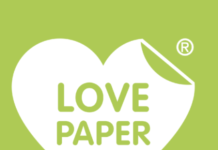Two Sides launched a new global initiative to stop the use of misleading ‘go green-go paperless’ environmental claims.
The organisation has revealed that major global corporations are still using inaccurate and misleading environmental claims to encourage consumers to ‘go paperless’ and switch from paper-based to digital communication. This is despite legislation being introduced by the advertising standards authorities to protect the consumer from being misled.
The survey, undertaken in February 2015, showed that in the UK, there is a significant proportion of financial service organisations, energy, petroleum and water suppliers and telecoms businesses that are still making false environmental claims. Similarly, research in the US shows a similar picture, with half of the leading Fortune 500 companies in the same sectors doing the same.
Martyn Eustace, Chairman of the Two Sides initiative said, ‘This is extremely frustrating and unacceptable. The fact that marketers in some of the most high profile corporations in the world are still using unsubstantiated and misleading environmental claims to persuade consumers to switch from paper-based to cheaper electronic communication is outrageous. Many consumers still have a strong preference for paper but they are being manipulated by a lack of clear and accurate information, when in fact paper, based on a natural, renewable and recyclable resource, should be considered as a highly sustainable way to communicate.’
He continued, ‘This behaviour must be tackled and we are therefore going on the offensive once again to educate and inform those responsible of their misconduct and to ensure that such organisations don’t continue to flout the law and mislead their most important asset, their customers.’
Two Sides will be engaging with companies in Europe, the USA, Canada, South America, South Africa and Australia, who have either reneged on undertakings to stop using misleading environmental claims or are now again claiming that switching to online billing and communication is better for the environment without supplying verifiable supporting evidence.
Original UK research completed in 2012 revealed that 70% of Telecoms businesses, 43% of the major banks and 30% of utility companies were all making inaccurate claims about the environmental benefits of switching from paper to digital communication. However, when challenged by Two Sides, these companies changed their marketing messages.
Eustace continued, ‘Consumers should not be mislead and encouraged to go ‘paperless’, when in fact it may be the sustainable way to communicate. It is just not acceptable to use misleading ‘green’ marketing to encourage customers to receive their bills or communications online, claiming that this is ‘better for the environment’. The majority of these claims are unsubstantiated and the term ‘paperless’ is also disingenuous as many consumers resort to home printing to ensure a permanent hard copy.’
Two Sides maintains that the linkage made between switching from paper to electronic services and helping the environment creates a misleading impression about the sustainability of print and paper. These claims are also unsupported by facts, they contravene the latest UK CAP code, (Committee for Advertising Practice), flout guidelines by the US Federal Trade Commission and CSR Europe (the leading European business network for corporate social responsibility), the UK Government department DEFRA, and locally The Advertising Standards Authority of South Africa (ASA).
Phil Riebel, President of Two Sides North America commented, ‘Over the past 12 months our campaign has successfully changed over 50% of the misleading marketing claims we have uncovered, but there is so much more education to do because the majority of corporate marketers don’t understand the life-cycle and sustainable features of print and paper products they are marketing based on perception instead of science-based facts.’
‘We are more than willing to engage in a meeting and provide these companies’ marketing and legal departments with all the facts about the sustainability of print media to help ensure that the messages they are sending out to the public and their customers are both factually and environmentally correct. Reporting to authorities is a move of last resort. In fact, we seldom have to do this and find that, working together with corporates is the best way to ensure that consumers remain protected from the increasing greenwash in our society,’ said Eustace.
‘The true picture of the excellent environmental benefits of paper is being overlooked by these false messages. In Europe, 44% of the land area is covered by forests and 93% of our paper comes from Europe where the area of forest has grown by 30% since 1950 and has been increasing at a rate of 1.5 million football pitches every year.
In South Africa, 600 million trees across 762 000 hectares are specifically grown for use in pulp and paper manufacture. The industry plants in excess of 260 000 trees every single day. All paper in South Africa is produced from plantation-grown trees, recycled paper or bagasse (sugar cane fibre). Plantation-grown trees are farmed for paper, just as maize is planted for cereal and wheat for bread.





















